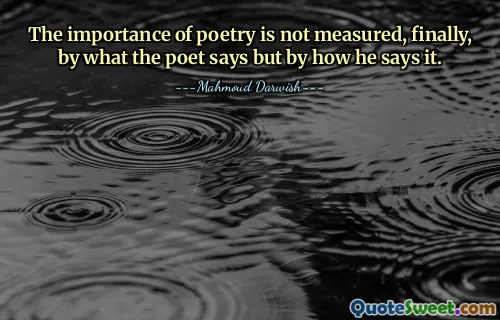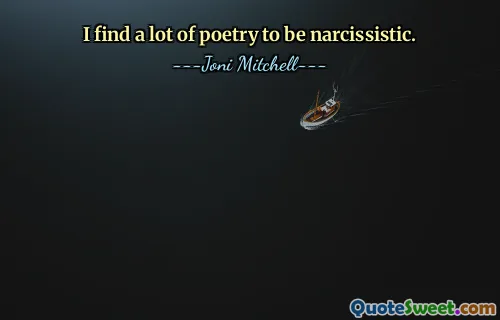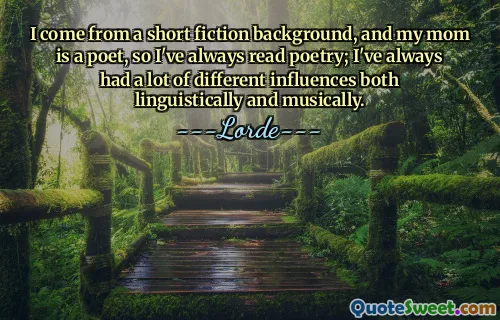Then there's the twoof us. This wordis far too short for us, it has onlyfour letters, too sparseto fill those deep barevacuums between the starsthat press on us with their deafness.It's not love we don't wishto fall into, but that fear.This word is not enough but it willhave to do. It's a singlevowel in this metallicsilence, a mouth that saysO again and again in wonderand pain, a breath, a fingergrip on a cliffside. You canhold on or let go.
The quote reflects on the limitations of language, particularly the word "two," which seems inadequate to convey the depth of connection experienced between two individuals. The author emphasizes that the brevity of the word cannot fill the profound voids that exist in a relationship, which are magnified by the silence of the cosmos. It suggests a longing for something more than love, hinting at an underlying fear that complicates deeper emotional bonds.
This excerpt captures the tension between desire and fear, portraying a relationship that exists on the edge, like a precarious grip on a cliff. The imagery of "a single vowel" and a "metallic silence" underscores both the wonder and pain inherent in human connections. Ultimately, it highlights the choice between holding on and letting go, suggesting that while the word may be insufficient, it still holds significant meaning in the context of love and vulnerability.





